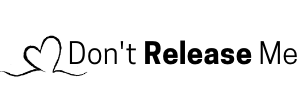One long weekend was all it took to crap on everything I believed in. Trusting my spouse and family to have my best interests at heart, I was crushed to wake up and find myself involuntarily held in a behavioral unit on a 72 hour assessment (hold). I lost out on personal activities I had excitedly looked forward to. Instead, I was detained in a mental hospital with ‘jail-like’ controls, and doctors looking for ways to milk my insurance into a much longer ‘sentence’ (stay).
The stigma of being in a mental hospital will stick with me forever. The few that were told of my situation would inquire after my well-being, and I knew their perception of me had changed. The deep looks, stares and averted eyes should have been enough of a clue but it was how they said it. The tone and the long syllables, as people asked ‘Hoooooow Arrrrrrre Youuuuuuu?’ Well-intended? Perhaps, but I knew they were also labeling me, ‘Cray-Cray, ‘Bat-shit crazy’, ‘Whack job’, ‘insane’, ‘demented’, psychotic’ or just ‘mental’. There were also the skeptical and sometimes fearful facial expressions that were clearly not empathy or sympathy. If I’d broken my foot, there would have been compassion, but mental health issues are a whole different ball game. If you can’t see it, then there must be something wrong with the person. Nevermind that mental health is the neuroscience of the brain. It’s physical. Maybe it’s like cancer, if they can’t see it, they can’t relate. But for me, it was dehumanizing, belittling, and uncomfortable. I even started to wonder if I was dangerous. In this time of Covid19 virus and the wearing of masks, you might be able to relate to how people treat you when you forget your mask. Like a ‘lepper’. Too bad a face mask couldn’t provide a ‘false’ sense of safety (or cure) for mental health.
When I got out of ‘jail’ I wasn’t the same person. As I integrated back into family and social circles I had to wonder if they ‘knew’ about me. What did they hear, was there gossip, are they afraid of me, will they stay away because I’m ‘crazy’, were some of the thoughts I looped in my head. Of course, I wanted to avoid the inquiries, the conversations, the ‘not talking about it’, the wondering if they knew and what they knew. I’m a very private person, so it was degrading to have anyone know about it. And believe me, people treat you differently, even when they say they know you’re fine. They wonder if you’ll flip out. I could see that some people were just attracted to catching up with me to appease their sick curiosity of what ‘crazy’ looks like.
When I left the hospital, I felt embarrassed, ashamed, vulnerable, threatened, isolated, alone, and a shadow of my former self. My whole self-worth was non-existent. I had a low self-esteem. I wanted to hide, disappear and hope that with time this would all go away. But I fell through the rabbit hole, and it wasn’t going away. I didn’t realize initially that my life would never be the same. I would never be the same. I thought I would just wipe this whole event out of my mind, ignore it, pretend it didn’t happen, never tell anyone about it, and just get back to my life.
I initially tried to act normal. More normal than normal, because I knew everyone was watching me, waiting for me to have some psychotic episode or tantrum. I went into a state of denial. Perhaps if I don’t talk about the elephant in the room, no one will see it. I didn’t want to give any power to it, it didn’t exist, it never happened. I jumped into my normal routine of worrying and caring about my family and friends. Only that didn’t get me back to where I was, because the sense of shame was so deep. As I realized my life wasn’t going back to normal, I developed a sense of guilt. Like somehow everything was my fault. If I had just been a better wife, mother, worker, you name it, then this wouldn’t have happened. I felt that my family not being back to normal was all my fault. The guilt was immense. And that just led me down the path of feeling I had to fix it all and make amends. My focus was on my guilt, because that was easier to solve. I just needed to clear my conscience and cleanse my soul by atoning for all the things I had done wrong. I could set myself free of guilt through truth and apology. What I couldn’t so easily solve was my self-esteem and sense of shame. That’s not so easily rebuilt.
So here I am, several years later, still a work in progress. I could resolve some of the guilt by working to accept that sometimes people make mistakes, we are human, and I needed to learn it was ok. The harder part is the shame because that’s about feeling bad about myself, and it’s really hard to learn to accept myself. Self-forgiveness is one of the hardest things I’ve ever had to work on, but the most powerful as well. For me to be emotionally and mentally healthy, I have to heal and gain peace of mind. This is not an easy process, nor does it happen overnight. To heal myself, I looked to how I would help others. So my cure will include: courage, compassion, forgiveness, making amends, taking responsibility and gaining some self-understanding.
Some of what I’ve learned comes from the work of Beverly Engels, a licensed Marriage and Family therapist, who’s published several books. It Wasn’t Your Fault: Healing the Shame of Childhood Sexual Abuse through Self-Compassion has good information for those suffering from guilt and shame.
Photo by Michael Kilcoyne on Unsplash
ABOUT THE AUTHOR

Nikita Mears
Follow my crazy, true story. Curated and original content published weekly!
Nikita@dontreleaseme.com




Leave A Comment
You must be logged in to post a comment.